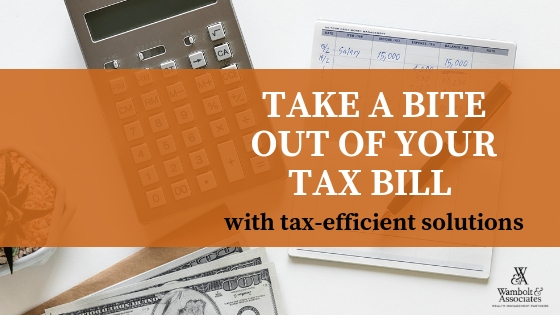VTI are generally considered more tax-effective than VTSAX. VTSAX tax-cost ratio is 0.70%. VTI tax-cost ratio is 0.49%. That means the post-tax return will be 0.21 percentage points higher on average for VTI vs.
Similarly, How often are Vea dividends?
VEA Dividend Information
VEA has a dividend yield of 3.11% and paid $1.47 per share in the past year. The dividend is paid every three months and the last ex-dividend date was Mar 21, 2022.
How are VTI dividends taxed? If they’re unqualified dividends, they will be taxed at your normal income rate. If they’re qualified dividends, they will be taxed between 0% and 20%.
Thereof, Whats the difference between VOO and VTI?
The only real difference between VOO and VTI is that VTI includes small, mid, and large cap stocks, while VOO is only large-cap stocks.
What is VTI and VOO?
Quickly compare and contrast Vanguard Total Stock Market ETF (VTI) and Vanguard 500 Index Fund (VOO). Both ETFs trade in the U.S. markets. VTI launched on 05/24/01, while VOO debuted on 09/07/10.
Does IVV pay dividends?
Technical: Dividend: 9-Jun $1.4811 (Est.)
Does Vug pay a dividend?
Vanguard Growth (VUG): Dividend Yield. The Vanguard Growth (VUG) ETF granted a 0.61% dividend yield in 2021.
What is VOO dividend yield?
VOO Dividend Yield: 1.35% for April 8, 2022.
What is a qualified dividend vs ordinary?
Ordinary dividends are taxed as ordinary income, meaning a investor must pay federal taxes on the income at the individual’s regular rate. Qualified dividends, on the other hand, are taxed at capital gain rates. Lower-income recipients of qualified dividends may owe no federal tax at all.
Are VXUS dividends qualified?
The dividend on Vanguard’s diversified international fund (ticker: VXUS), for example, is running around 74% qualified this year; on its European fund (VGK), 91%.
What is the capital gains tax rate for 2021?
2021 Long-Term Capital Gains Tax Rates
| Tax Rate | 0% | 15% |
|---|---|---|
| Single | Up to $40,400 | $40,401 to $445,850 |
| Head of household | Up to $54,100 | $54,101 to $473,750 |
| Married filing jointly | Up to $80,800 | $80,801 to $501,600 |
| Married filing separately | Up to $40,400 | $40,401 to $250,800 |
• 17 févr. 2022
Is VTI overvalued?
VTI seems slightly overvalued on a historical basis, but slightly undervalued on a relative basis. On net, the fund seems reasonably valued, which is about as best as one can hope for under current market conditions.
Should I invest in both VOO and VTI?
VTI is better than VOO because it offers more diversification and less volatility for the same expense ratio of 0.03%. VTI also provides exposure to large, mid, and small-cap companies compared to only large-cap with VOO.
Is VOO overvalued?
VOO and Dividend ETFs’ Yields Have Sunk to Levels that Show They Are Still Very Overvalued.
Which is better QQQ or VGT?
If you want an ETF with higher dividend yields, then you should choose VGT, which has a 1.22% dividend yield. QQQ is nearly half of that with a 0.74% dividend yield. The higher dividend yield from VGT means that you will likely get paid more income at the end of the year.
What’s the difference between IVV and VOO?
IVV has a 0.04% expense ratio, which is higher than VOO’s 0.03% expense ratio. Scroll down to visually compare performance, riskiness, drawdowns, and other indicators and decide which one is better suits your portfolio: IVV or VOO.
Which ETF has the highest dividend?
7 of the best high-dividend ETFs:
- Vanguard High Dividend ETF (VYM)
- Vanguard Dividend Appreciation ETF (VIG)
- Schwab U.S. Dividend ETF (SCHD)
- SPDR S&P Dividend ETF (SDY)
- SPDR S&P 500 High Dividend ETF (SPYD)
- iShares Core Dividend Growth ETF (DGRO)
- ProShares S&P 500 Dividend Aristocrats ETF (NOBL)
How do I get IVV on ASX?
Complete an application with your personal and financial details, like your ID and tax file number. Fund your account with a bank transfer, PayPal or debit card. Search for the iShares S-and-P 500 ETF. Find the ETF by name or ticker symbol: IVV.
Which is better QQQ or VUG?
As you can see, they have performed almost identically over the last year, with QQQ only beating VUG by 0.94%. Similarities between QQQ and VUG: Exchange-Traded Funds (ETFs)
Which is better VUG or VOOG?
The volatility of VUG is currently 23.13%, which is higher than the volatility of VOOG at 22.01%. The chart below compares the 10-day rolling volatility of VUG and VOOG.
Join TheMoney.co community and don’t forget to share this post !
